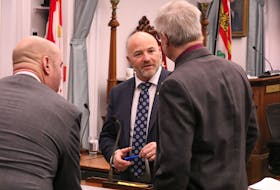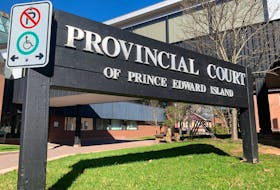CHARLOTTETOWN, P.E.I. — The province’s energy minister says a proposed plan to do away with discounts for customers who use large amounts of electricity could cause hardship for Island farmers.
In December, Maritime Electric filed an application to the Island Regulatory and Appeals Commission (IRAC) for rate increases over a three-year period. A Maritime Electric consultant working with the utility has also requested to do away with a discount for residential power users, such as farmers, who use more than 2,000 kilowatt hours per month.
In the legislature on Friday, Energy Minister Steven Myers said the changes to these "second block" users would be burdensome for farmers.
"Farmers are charged at residential electricity rate, rather than the industrial or general service rate," Myers said. "Abolishing the second block immediately will have an unfair impact on farmers."
In response, Myers said his department will, through the P.E.I. Energy Corporation, be intervening in IRAC hearings. He believes the changes should be implemented over a period of years.
"While we do recognize that electricity costs money and we're willing to pay fair rates, we're also going to fight for Islanders on this important issue," Myers said.
Although IRAC regulates electricity rates, the province does not have the ability to set electricity prices.
But Green MLA Steve Howard said the province should focus on establishing billing practices that reward ratepayers who use less power, not more.
"We have what's called a declining rate structure. So, the more you use, the less you pay," Howard said. "The fact of the matter is, the more you use, the more of a burden you are on the grid."
Proposed electricity rate increases over the next two years
- March 1, 2020 - 1.4 per cent
- March 1, 2021 – 1.4 per cent
Howard said more high-consuming users place more burdens on the power grid. He also said having comparatively lower rates for users that consume more power means that lower-income users are being saddled with comparatively higher rates.
Howard said a flat rate for all users is better but said the billing structure should be reversed.
"If that first block of power was less expensive and that second block of power was more expensive, you would make efforts to stay within that cheaper block of power," Howard said. "There's a sweet spot there where we could encourage people to use less, to be energy misers and energy-efficient, which is what we want to do.”
Myers acknowledged that his department will be introducing programs, such as retrofitting farming operations to use solar power, to incentivize farmers and homeowners to reduce their energy usage. But he said a sudden increase in power rates could hurt the farming industry.
"What we're saying is that by doing it overnight, it's going to negatively impact the people that do use the second block. And one of the larger users of it are our farm community," Myers said.
Myers said the IRAC hearings will take place over the course of the summer.









